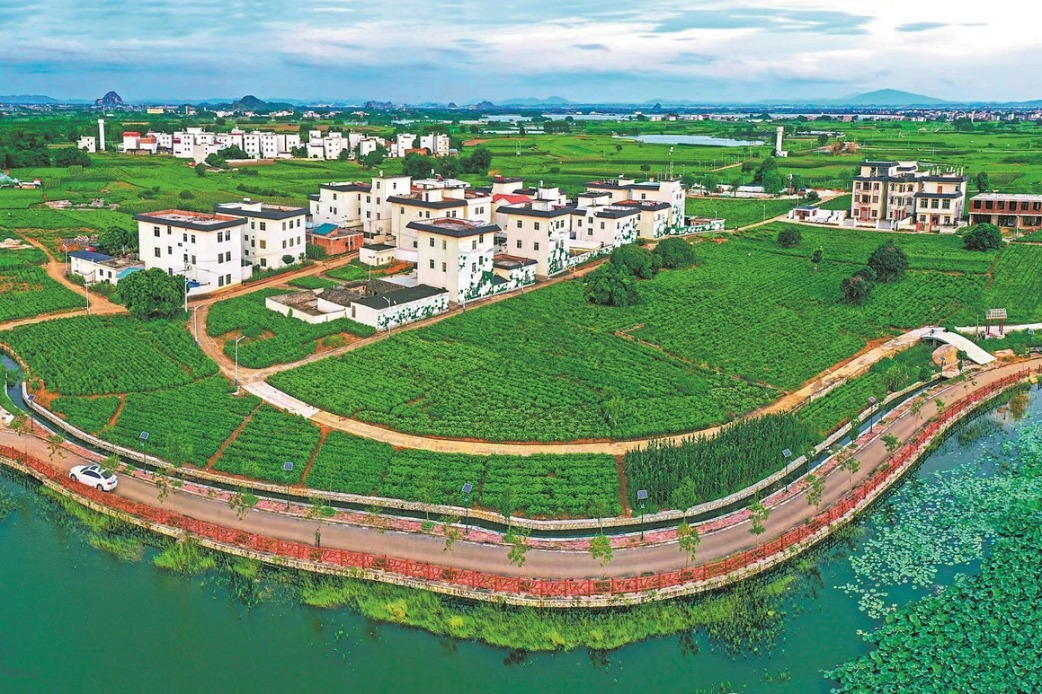Burying the past, to plant a greener vision of the future


Once semi-barren hills have been regenerated by getting farmers to go green. Li Lei and Huo Yan report from Yan'an, Shaanxi province.
By 1998, the mountain village of Nangou in the northwestern city of Yan'an, Shaanxi province, was on the brink of environmental collapse. Decades of intensive farming and overgrazing had stripped the village of nearly all its vegetation, worsening the naturally semi-barren landscape.
In summer, frequent flash floods posed great risks to both villagers and crops in the ravine, while raging sandstorms during the rest of the year led to poor crop yields.
To stop the degradation, authorities in Wuqi county, which oversees the mountain hamlet, decided to persuade villagers to give up farming on the hillsides and instead plant walnut and apricot trees.
When mature, the cash crops would offer farmers a more stable basic income. The trees' root systems would also help protect the loose dirt on the hillsides from water erosion.
At the time, China had yet to launch its landmark reforestation program aimed at phasing out farming and grazing practices in environmentally fragile regions by offering subsidies to farmers.
Without the reassurance of compensation, farmers who had tilled the soil for years in the mountain village questioned the plan. They feared that if it failed there would be a food crisis.
"They believed we were depriving them of their only means of a livelihood," said Yan Zhixiong, former Party chief of the village.
The same suspicions prevailed among officials at the county and village levels. Many warned that failure of the program could threaten the livelihoods of hundreds of thousands of rural people.
"What did we do then? We did the math," Yan said, referring to their attempts to convince farmers, as well as themselves, that switching to cash crops would make farmers better off and generate immense environmental benefits.
The reforestation effort in Wuqi that began in 1998 was China's earliest government-led attempt to limit farming's damage to fragile environments.
One year later, following a symbolic visit by Premier Zhu Rongji to Yan'an, the small county's initial trial morphed into a nationwide campaign to return degraded farmlands and pastures to a healthier state.
Under the policy, the central government offered free saplings to farmers, who were required to progressively give up farming or grazing on hillside areas. As an incentive, they were provided with grain that exceeded the yield of their land. This later became monetary allowances calculated by land area.
Figures provided by the local government show Wuqi county has phased out farming on 163,000 hectares of land over the past two decades, and more than 2.1 billion yuan ($293 million) has been handed over to complying farmers.
- China to hold military parade on Victory Day
- Ex-KMT chief praises launch facility
- China's Sept 3 parade to highlight domestically produced equipment
- Alert renewed as scorching heat persists across several regions in China
- Smart port boosts China-Vietnam trade
- Former senior Hunan official receives death sentence with reprieve for bribery





































